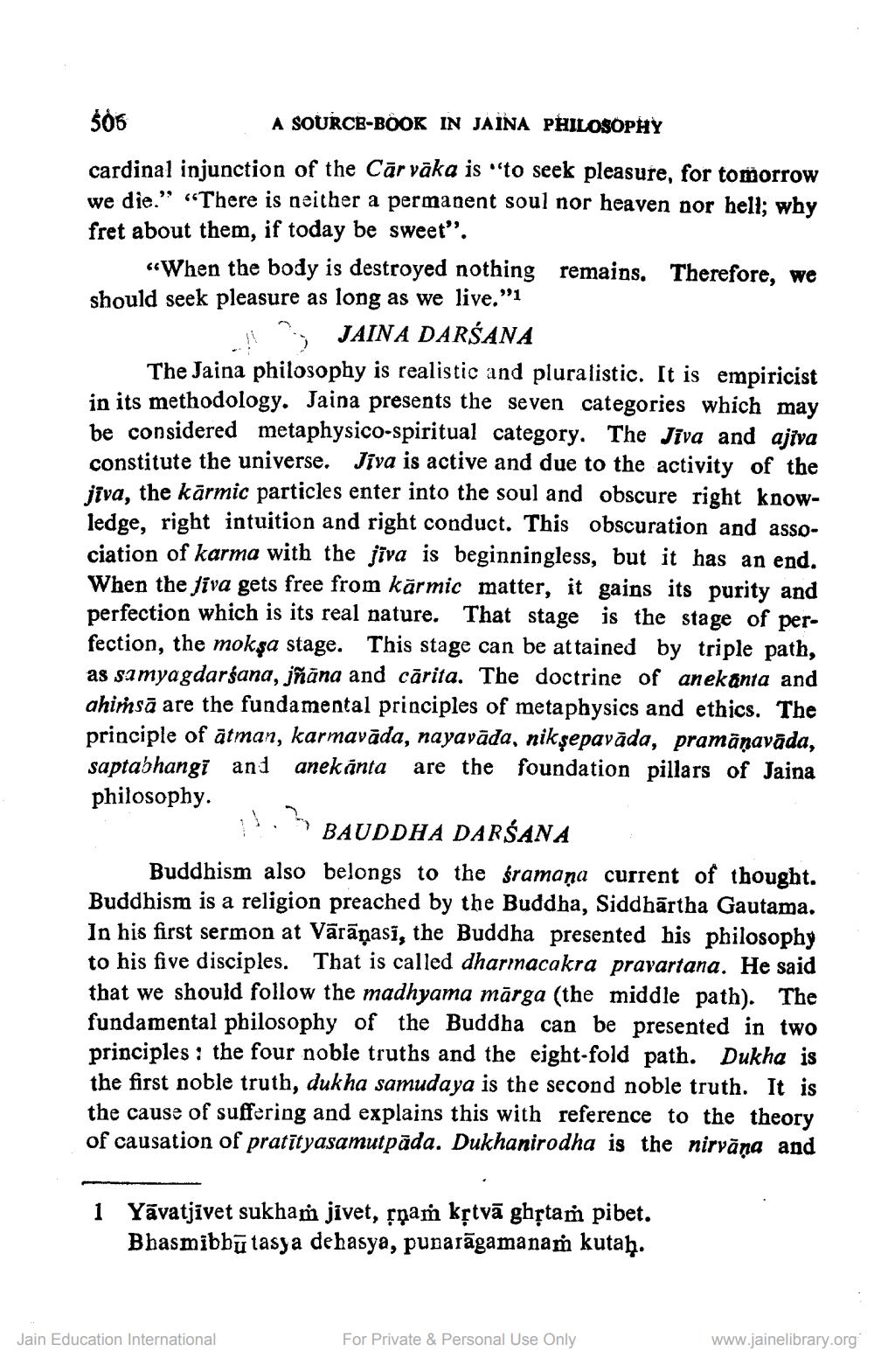________________
505
A SOURCE-BOOK IN JAINA PHILOSOPHY cardinal injunction of the Cār vāka is to seek pleasure, for tomorrow we die.” “There is neither a permanent soul nor heaven nor helt; why fret about them, if today be sweet”.
“When the body is destroyed nothing remains. Therefore, we should seek pleasure as long as we live."1
; JAINA DARŠANA The Jaina philosophy is realistic and pluralistic. It is empiricist in its methodology. Jaina presents the seven categories which may be considered metaphysico-spiritual category. The Jiva and ajiva constitute the universe. Jīva is active and due to the activity of the jiva, the kārmic particles enter into the soul and obscure right knowledge, right intuition and right conduct. This obscuration and association of karma with the jīva is beginningless, but it has an end. When the liva gets free from kārmic matter, it gains its purity and perfection which is its real nature. That stage is the stage of perfection, the mokṣa stage. This stage can be attained by triple path, as samyagdarśana, jñāna and carita. The doctrine of anekanta and ahiṁsā are the fundamental principles of metaphysics and ethics. The principle of atman, karmavāda, nayavāda, nik sepavāda, pramānavāda, saptabhangi and anekanta are the foundation pillars of Jaina philosophy.
J. BAUDDHA DARŠANA Buddhism also belongs to the framana current of thought. Buddhism is a religion preached by the Buddha, Siddhārtha Gautama. In his first sermon at Vārāṇasī, the Buddha presented his philosophy to his five disciples. That is called dharmacakra pravartana. He said that we should follow the madhyama mārga (the middle path). The fundamental philosophy of the Buddha can be presented in two principles : the four noble truths and the eight-fold path. Dukha is the first noble truth, dukha samudaya is the second noble truth. It is the cause of suffering and explains this with reference to the theory of causation of pratītyasamutpāda. Dukhanirodha is the nirvana and
1
Yāvatjivet sukham jivet, şņam kļtvā ghștam pibet. Bhasmibbu tasya dehasya, punarāgamanaṁ kutaḥ.
Jain Education International
For Private & Personal Use Only
www.jainelibrary.org




